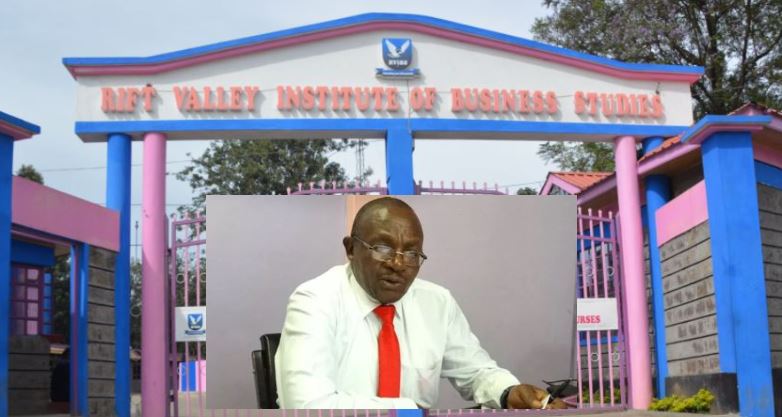 John Gitau has started and closed businesses to a point of regretting quitting formal employment.
John Gitau has started and closed businesses to a point of regretting quitting formal employment.
However, his resilience bore fruit as he now owns a successful learning institution in Nakuru, The Rift Valley Institute of Business Studies (RVIBS), a technical and vocational training accredited institution, which currently has six campuses.
He shared his story, which is a study in failing forward.
What was your first foray into entrepreneurship?
I was working for Unilever when I went for it. I started a side business, a shop in Kahawa West in Nairobi in 1990. The business did not thrive and I had to shut it down after six months.
I was however determined to be my own boss rather than forever slave for other people’s visions. So I couldn’t quit. I opened a hair and beauty salon in Nairobi’s Umoja estate. It was doing well, but, unfortunately, it followed a similar script as the first one.
Why do you think your two businesses failed?
The problem was involving family members in the running and management of both businesses. Though both at first showed promise of doing well and expanding, disagreements and feuding with those entrusted to manage them is what contributed to the collapse. Unlike the case of hired workers, one can fire, it is a different scenario with family members.
After the failure of these businesses, I resolved that if I wanted to manage any business, I would be in the driver’s seat. I then took a sabbatical from trying my hand in anything and concentrated fully on my employment.
When did you get back to the business world?
In 2006, I got transferred to Kericho, and while there, the temptation to run a side hustle and have another revenue stream hit me again. So I opened a hair and beauty business and it picked up well.
I expanded to include a cyber café which later transformed into a beauty school under the name Kericho Beauty School. We had 10 students when it opened its doors.
The idea of the beauty school was borne out of the need to address the issue of unemployment, equip and empower them with skills that would make them self-reliant.
The combined ventures were so promising that I had to quit my formal employment to concentrate fully on businesses. Then the worst happened. No one had foreseen the 2007-08 post-election violence coming. All the investments went up in smoke when the premises were looted. I had to flee to Nakuru.
Back to square one?
Essentially. If there was anything I regretted, it was quitting formal employment as I had not anticipated the worst. The saving grace, however, was that I had terminal benefits which I decided to invest in a college business in Nakuru town. This was mid-2008. I was picking up from where had I left, but with diversified courses on offer.
Today, the college is the Rift Valley Institute of Business Studies. Like any other startup, it did not begin on a right note, as the initial enrollment was so low that I was forced to get a job with the Kenya Breweries Limited. The contract lasted three years, with the earnings going in to propping up the college business. This continued for a long time before the business could finally pay its own expenses.
How has the college grown to date?
The institution has seen over 5,000 students graduating since its inception, and it offers non-technical and technical courses. It is currently accredited to offer TVET courses.
However, like other businesses affected by the Covid-19 pandemic, we closed down and we hope the situation will normalise and the economy will be fully opened.
Having been there done that, what advice would you give to anyone who wants to quit employment for business?
Being an entrepreneur is like being an artist. If you do what you love you will experience lots of satisfaction. I have great love for the education of the youth. That gives me the energy and hope for a better day despite Covid-19 pandemic hampering the business.
So you think you want to get into the murky world of business? This an opportune moment to sit back and reflect on your calling. You could be having many great ideas but I would urge you to focus on where your heart truly is. Crystallise the idea to actionable points. Believe in your ability to action.
Also, start small. Many people make the mistake of starting too big and with huge loans that cripple them.
Start a small business that is scalable, an example is, if you desire to run a primary school, start with early childhood education to say Grade Two level. Then progressively increase the classes each year.
Lastly, as an entrepreneur, you have to learn to manage your time well. God gave all of us 24 hours each day. How you utilise your every hour will determine your success.
What have you learned on your investment journey and what advice can you give to others?
It is noble to fail while attempting to do something than to fail doing nothing. It was discouraging with each setback experienced along the process but I soldiered on.
To those setting off on an investment journey, it pays to study the market to see if the investment is viable or worth it.
You should want to address a need or offer services by stepping in to fill a gap in a market segment rather than try to be a market disruptor by introducing what may not sell.
Source: Hustle






